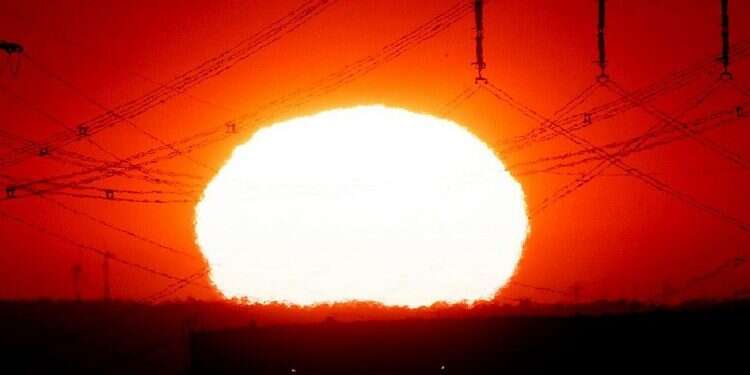"Humans are responsible for climate change," a recurrent bottom-line from the ongoing panel of world leaders in Glasgow over the issue.
Follow Israel Hayom on Facebook and Twitter
The window is quickly shrinking in what environmental activists call a massive wake-up call.
For the Middle East, the clock is ticking even faster, i24NEWS reported.
In the global tinderbox that is the Middle East and North Africa, scientists predict that life will get hotter and dryer.
Thus, more people will soon be competing for fewer resources under increasingly unbearable living conditions.
As the Sahara Desert expands, for example, average temperatures in the near regions are rising 1.5 to 2 times faster than the rest of the world.
Daniel Rosenfeld, a professor for the Institute of Earth Sciences at Hebrew University in Jerusalem, told i24 News that rainy climates of the two great deserts - the Sahara Desert and the Namib Desert - are receding to the North as winters get shorter.
"When the rain does occur, it becomes heavier and more flat with longer dry spells in between," Rosenfeld explained.
"With that you get… [there are] more droughts in the same regions and periods [of time]," he added.
As Israel continues to take steps in adhering to the importance of climate change, it is also feeling how climate change is affecting its defensive and military capabilities.
Subscribe to Israel Hayom's daily newsletter and never miss our top stories!
"There's an understanding that the physical manifestations of climate change are already exacerbating the risks for political instability which are inherent in this region," Shira Efron, a senior research fellow for the Institute of National Security Studies told i24 News.
Topping the agenda at the United Nations Climate Change Conference is how best to deal with the challenges of climate change.
This article was first published by i24NEWS.




